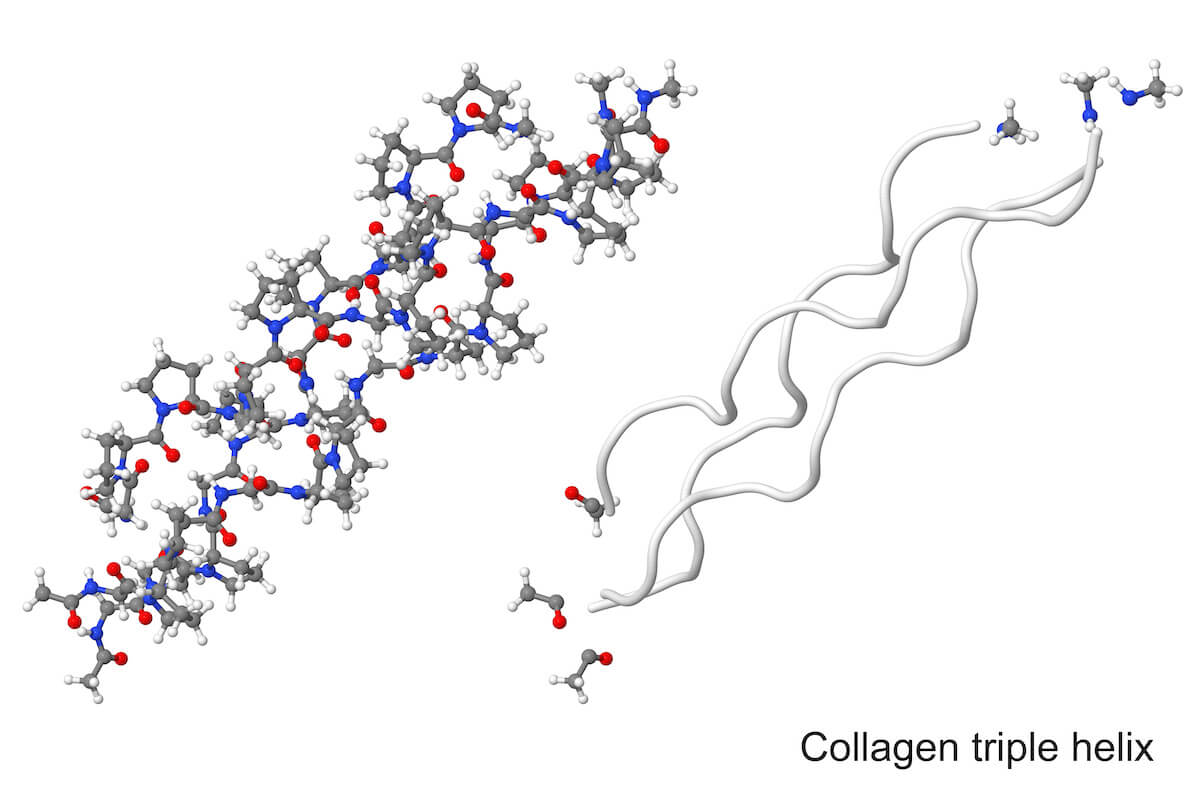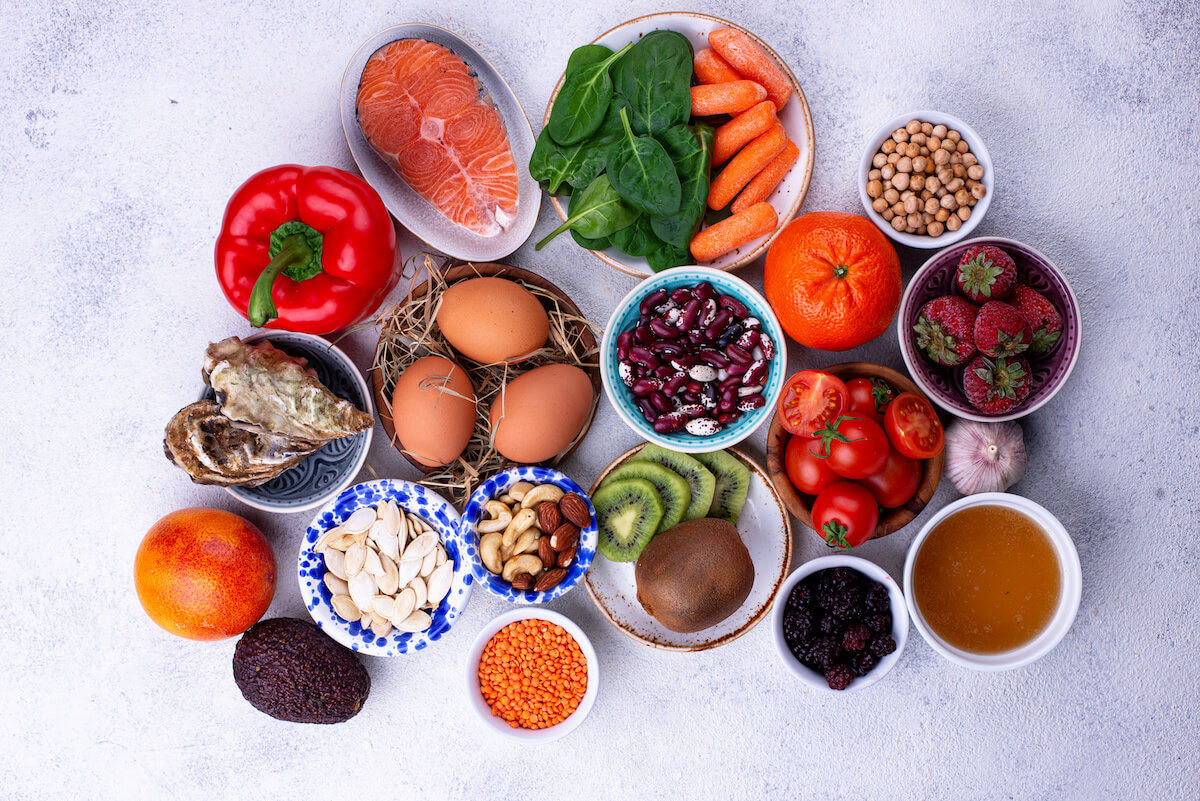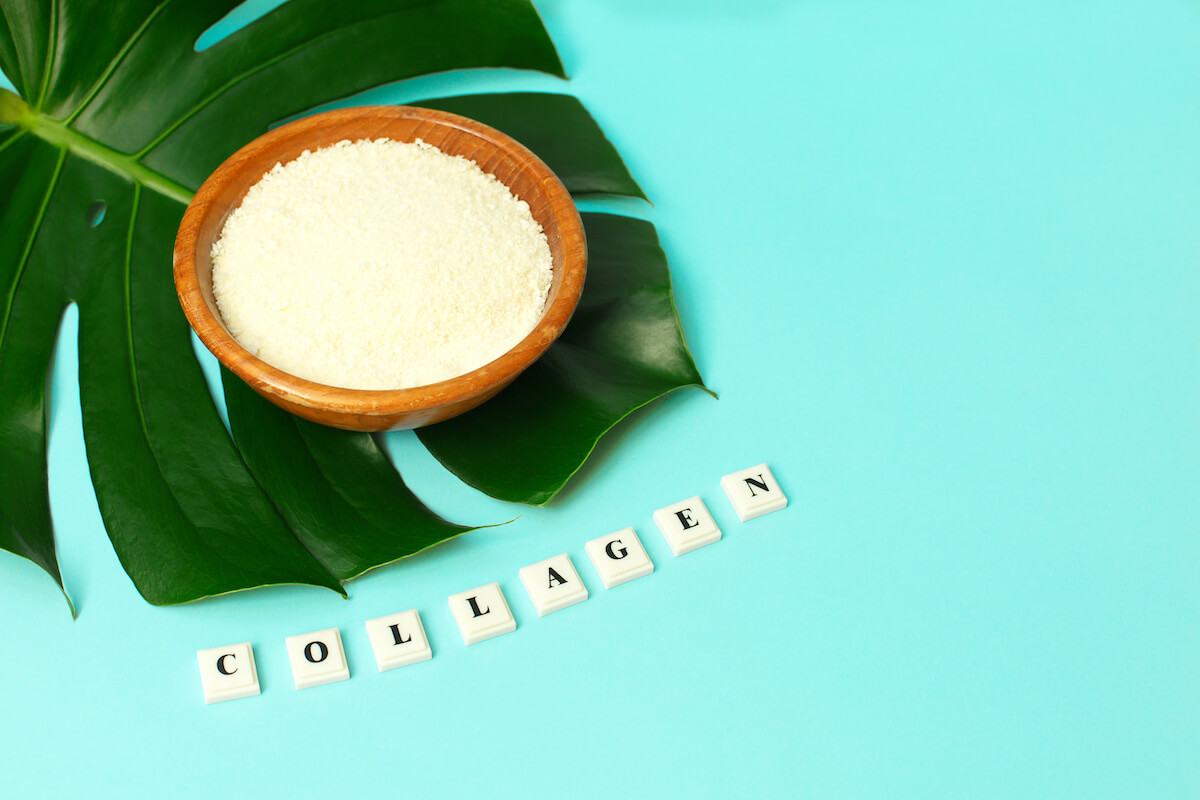
07 Oct Hydrolyzed Collagen: Understanding Its Potential Benefits
Collagen supplements are everywhere right now, from smoothies and coffee to topical skincare products. Collagen supports overall well-being, from improving joint and skin health to strengthening muscles.
If you haven’t heard of hydrolyzed collagen, you’re missing out on this potential game-changer. It’s found in a range of today’s most popular dietary supplements, and we’re going to look at why. We’ll also explain what hydrolyzed collagen is, its potential benefits, and how to distinguish which type of collagen is best for you.
What Is Collagen?
Collagen is a protein that makes up your connective tissues, including tendons, ligaments, blood vessels, organs, bones, cartilage, and skin. It’s found in all animals (it does not naturally occur in plants), and is the most abundant protein in the human body. In fact, your skin is about 80% collagen. While everybody produces collagen, you can also take it orally or apply it topically to give your body more access to this protein.
Collagen, also known as collagen protein, comprises the extracellular matrix of skin and some soft tissues — think of it as the structure or scaffolding that gives these tissues shape. Another related term is “collagen peptides,” which are small pieces of protein derived from collagen. (We’ll dive deeper into that in a bit.)
There are 28 types of collagen, with the four main types being type I, type II, type III, and type IV. Here’s a quick look at how they’re used in the body:
- Type I: About 90% of the collagen in your body is type I. It’s made of dense fibers that provide structure for everything from your skin to your bones and teeth.
- Type II: This type of collagen is more loosely packed and used to cushion your joints with elastic cartilage.
- Type III: This type of collagen supports your body’s arteries, organs, and muscles.
- Type IV: Like type I, this collagen is found in your skin. It helps with filtration to keep your body healthy.
Despite how crucial it is to your body’s various tissues, you produce less and lower-quality collagen as you grow older. (More on that in a moment.)
A Closer Look at Collagen Protein

Thanks to abundant amino acids, collagen proteins make your skin flexible, allowing it to bend and move when you do. If you break it down, collagen proteins are made from a triple helix of proline, glycine, and hydroxyproline, all of which are long-chain amino acids. These amino acids bond to form collagen peptides that your cells can generate and use to bind your tissues, holding your body together.
In addition to your body reducing collagen production as you age, you may also find it challenging to get enough amino acids in your diet. In recent years, we’ve seen a reduction in the consumption of high-protein foods in favor of more convenient options that support a fast-paced lifestyle. Fewer high-protein foods mean fewer amino acids in our diet. Plus, age can also reduce protein digestion and absorption rate.
The first signs of your body producing less collagen protein include visible skin aging, such as fine lines and wrinkles. These appear because the reduction of collagen impacts skin elasticity and structural support, making your skin less firm and supple. Cartilage also weakens with age. However, dietary supplements (particularly those developed in recent years) help fill in the gap.
Potential Benefits of Collagen
Supplementing your diet with collagen protein offers potential health benefits that support not just an active lifestyle but also healthy aging. Some of the most beneficial effects found in clinical trials are highlighted below. Note that the studies linked below reference or report on separate human clinical trials that do not follow the same dosage or administration guidelines.
- Joint pain and connective tissue improvements
- Increase in strength and fat-free mass (FFM)
- Improvements for patients with osteoarthritis
- Better heart health
- Improvements for symptoms of skin aging
- Healthier nails
- Healthy hair growth
- Improved bone health
Adding a high-quality collagen supplement to your diet is the most reliable way to get these benefits. But you don’t want just any collagen supplement — you want one your body can use. To find that, you need to emphasize protein bioavailability and a quality source of collagen.
Common Sources of Collagen

You might already be drinking bone broth, eating grass-fed meats, taking protein powder, and maintaining a healthy diet. But the question remains: is your body able to use the collagen you’re consuming?
Of course, it’s a case-by-case answer for whether your current sources of collagen are helping. For example, some collagen molecules could be too large for your body to use, bone broth is unlikely to provide reliable concentrations of collagen (even if it’s made from grass-fed cows), and your non-optimized protein powder that claims to include collagen might use a source with low bioavailability.
What Is Hydrolyzed Collagen?

Hydrolyzed collagen, or collagen hydrolysate, is made by breaking down collagen proteins into smaller particles. Protein hydrolysis is a natural process that, to some extent, happens in your body when you consume protein. Hydrolyzed collagen is also found in gelatin, though it is in a partially hydrolyzed and degraded state due to the heat used when processing the product.
For products designed and optimized for humans, though, the most common ways to hydrolyze protein include enzymatic hydrolysis and acid hydrolysis.
Acid hydrolysis uses hydrochloric acid (HCL) to break apart the peptide bonds. However, this destroys or damages some amino acids, such as tryptophan, methionine, and cysteine. Enzymatic hydrolysis is often used to circumvent this issue. With enzymatic hydrolysis, a chemical digestion process is used to break the bonds holding the collagen protein together. Enzymes are proteins that can speed up biochemical reactions and allow rigid peptide bonds to break, among other applications in the body.
Regardless of which method is used, protein hydrolysis converts the source of the collagen (i.e., bovine skin or marine collagen) into smaller, more bioavailable molecules. The rigid peptide bonds are broken apart, releasing peptides and polypeptides that are easier for your body to use.
The degree and quality of hydrolysis impact the resulting product’s molecular weight and size.
A Look at Hydrolyzed Collagen Supplements
Hydrolyzed collagen is bioactive. In other words, once it’s absorbed into your bloodstream, your body can use it wherever it’s needed. This allows your body to perform vital functions like muscle recovery, joint repair, and maintaining skin elasticity.
For supplemental use, the primary difference between hydrolyzed collagen and other types of collagen is improved absorption. There are many hydrolyzed collagen supplements available on the market, including Ingredient Optimized Collagen, or ioCollagen. While it’s easy to get overwhelmed, you can find the right fit by focusing on quality.
Non-optimized collagen supplements often contain molecules that are too large to be readily bioavailable, which means your body might not be able to use them. In contrast, ioCollagen, which debuted in the Glaxon Wonder Collagen supplement, is designed for enhanced bioavailability on all fronts.
In addition to hydrolyzed collagen protein, Glaxon Wonder Collagen includes the following ingredients designed to enhance benefits:
- Hyaluronic Acid (HA): This substance is naturally produced by your body and is found in the highest concentrations in your joints and eyes. When ingested, it can aid with joint lubrication and skin hydration.
- Essential Vitamins and Minerals: Vitamins and minerals such as vitamin B12, vitamin C, and biotin can increase your body’s natural collagen production and synthesis.
- Extracts: DracoBelle™, a Moldavian Dragonhead flower extract that may increase collagen synthesis, thereby improving product efficacy.
Do You Need a Hydrolyzed Collagen Supplement?
Collagen is the “glue” that holds your body together, and it’s the most common protein in all animals. Your body relies on collagen to support your joints, muscles, skin, and other functions. And since the human body produces less of this vital protein with age (and digests it less efficiently), collagen supplements are increasingly popular. Unfortunately, non-optimized sources of collagen may include molecules that are too large for your body to easily use.
Hydrolyzed collagen provides your body with small bioactive molecules. Your body can transport these hydrolyzed peptides and polypeptides through the blood for use in repair and recovery, which helps keep you healthy and active.
If you’re dealing with joint pain or you want to support your body to ensure future health and mobility, it’s probably time to add a collagen supplement to your diet. Of course, it’s best to speak with your healthcare provider before changing your diet or adding supplements, but a quality source of hydrolyzed collagen is suitable for almost everyone.
Glaxon Wonder Collagen is an excellent place to begin your search. It features ioCollagen, which is optimized to ensure superior absorption and bioavailability to best support your health.


